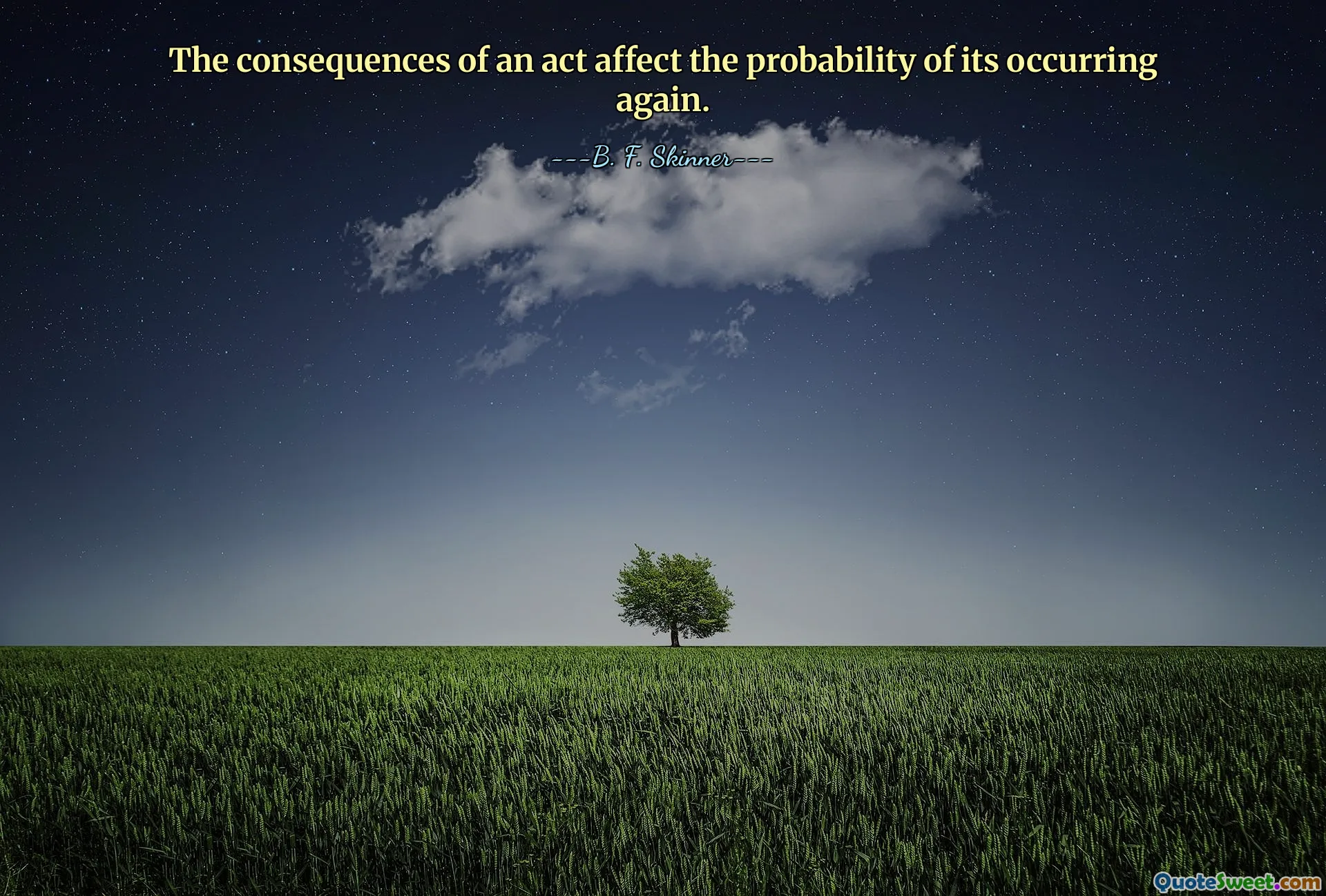
The consequences of an act affect the probability of its occurring again.
This quote touches upon the fundamental principles of behavioral psychology, particularly the concept of operant conditioning. It suggests that the outcomes of our actions play a crucial role in shaping future behavior. When a certain behavior is followed by positive consequences, such as rewards or praise, it increases the likelihood of that behavior happening again. Conversely, if an action results in negative consequences or discomfort, the probability of that behavior repeating diminishes. This interplay between actions and their outcomes is central to understanding how behavior is learned and maintained over time. Recognizing this, individuals and organizations alike can influence behaviors — employers using reinforcement strategies to cultivate productive work habits, educators applying behavioral incentives to motivate students, or individuals modifying habits based on the feedback received from their environment. On a broader societal level, this principle underscores how laws, social norms, and cultural practices serve as reinforcement or deterrents that guide collective behavior. Appreciating this dynamic allows for more strategic development of interventions aimed at behavior change, whether in personal growth, mental health, education, or social reform. Essentially, the quote emphasizes the importance of consequences in behavioral patterns and highlights the importance of deliberately shaping environments to foster positive behaviors and discourage negative ones. It reminds us that our actions are not isolated; rather, they are part of a feedback system that continually updates the likelihood of particular behaviors occurring in the future.









